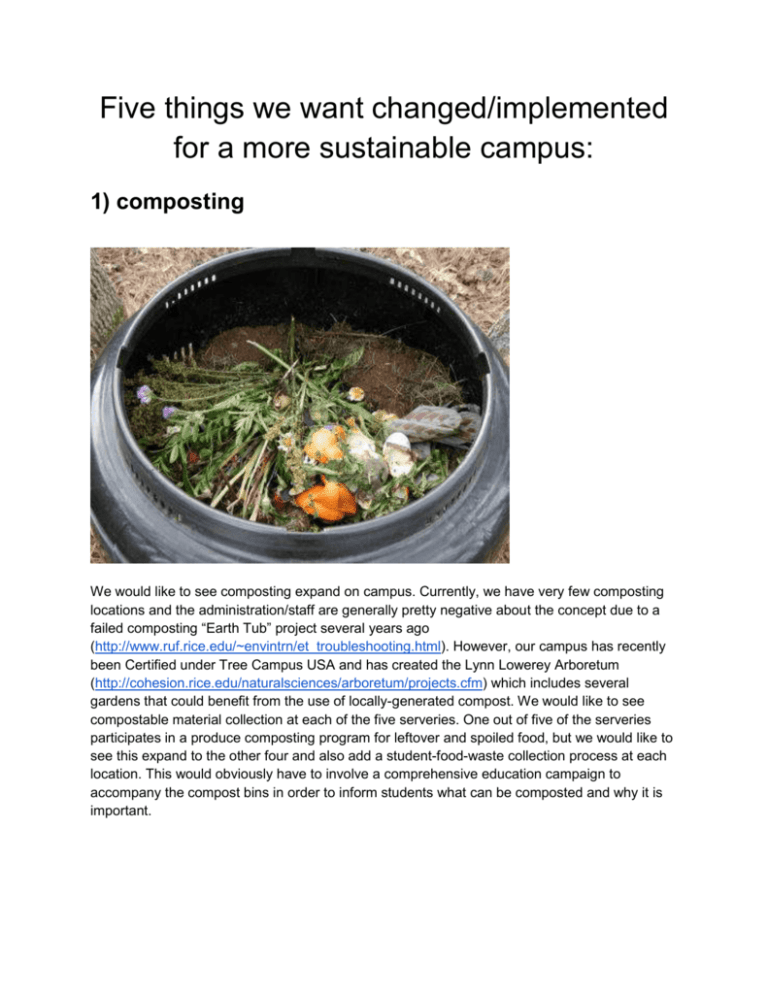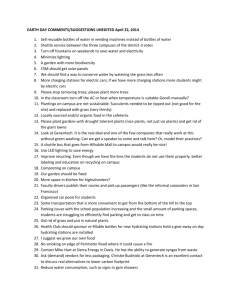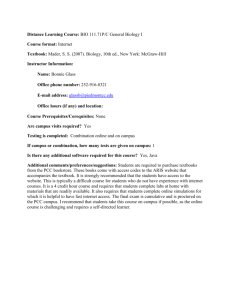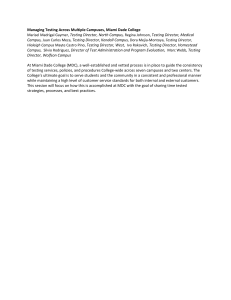1) composting - Teens Turning Green
advertisement

Five things we want changed/implemented for a more sustainable campus: 1) composting We would like to see composting expand on campus. Currently, we have very few composting locations and the administration/staff are generally pretty negative about the concept due to a failed composting “Earth Tub” project several years ago (http://www.ruf.rice.edu/~envintrn/et_troubleshooting.html). However, our campus has recently been Certified under Tree Campus USA and has created the Lynn Lowerey Arboretum (http://cohesion.rice.edu/naturalsciences/arboretum/projects.cfm) which includes several gardens that could benefit from the use of locally-generated compost. We would like to see compostable material collection at each of the five serveries. One out of five of the serveries participates in a produce composting program for leftover and spoiled food, but we would like to see this expand to the other four and also add a student-food-waste collection process at each location. This would obviously have to involve a comprehensive education campaign to accompany the compost bins in order to inform students what can be composted and why it is important. 2) Photovoltaic Solar Panels Located in Houston, Texas, Rice University has the right weather to maximize solar power efficiency. Cost, however, has been our university’s primary deterrent for investing in photovoltaics. Despite this, solar power is still on the table for the future: the new Barbara and David Gibbs Recreation and Wellness Center, constructed in 2009, was built with solar installations in mind. The roof of the complex was built at the optimal angle for solar exposure and with the proper structural strength and layout to support photovoltaic panels with minimal installation effort. Because of this we would like to see the university invest in this clean energy resource, at least at the Recreation Center, within the next three years. 3) more recycle bins outdoors Frankly, the complete lack of outdoor recycling facilities on campus, including at the football stadium, is unacceptable. According to the Director of Sustainability, Richard Johnson, the reason that no bins exist is that the budget for the higher-cost acceptable “aesthetically pleasing” has repeatedly been de-prioritized and passed over for more “exciting” and “relevant” projects by the Facilities, Engineering, and Planning Department. We would like to see, within the year, one outdoor recycling bin placed alongside every outdoor recycling trash bin. This includes the sports complexes as well, especially since disposables such as water bottles and beer cans are most often consumed at these locations. 4) ban plastic water bottles Let’s face it, plastic water bottles are the devil. Unfortunately, we live in Houston where we have a dichotomy between water resource scarcity (prolonged droughts, declining aquifers) and high water consumption (large lawns, above-average water bottle usage because of extreme heat). Although we can’t do anything to synthesize additional water resources, we can ban the use of plastic disposable bottles. There are more than adequate locations on campus for reusable bottles to be filled, and a student group is even currently analysing the feasibility of purchasing several bottle cleaning stations around campus. Reusable bottles are sold on campus at almost all of the residential colleges, as well as at the student center and can be bought for as little as $1.00 per bottle. We think it is more than acceptable to institute a university-wide ban on the sale of disposable bottles at on-campus vendor locations and at campus-sponsored events. 5) Low Impact Development/Water-sensitive Landscaping (note the dying grass in the lower half of the image) (flooding at Rice University) It’s hard to argue that Rice doesn’t have “green spaces”, but when you evaluate our vegetation from a sustainability standpoint, we’re not sure how “green” those spaces really are. Huge, repeatedly mowed and fertilized lawns surround our buildings and sidewalks. Not only do they require an enormous amount of water to keep green in the hot summer, but the non-native grasses are unsustainably fertilized and then cut back again over and over. We need a better, less water intensive landscape design. We need to look at incorporating xeriscaping through plants that have adapted to the wild and volatile Houston climate and require little to no maintenance (http://en.wikipedia.org/wiki/Xeriscaping). By filling in our flat, open lawns with shrubs, bushes, and other wild plants, we can also reduce our stormwater runoff. Since flooding is maybe the number one issue in this part of Houston, focusing interdisciplinary efforts on water retention is a necessity. In addition to the green roofs that have begun popping up around campus, we would like to see some of the unused lawns relandscaped to incorporate aspects of Low Impact Development (http://water.epa.gov/polwaste/green/index.cfm), such as vegetated bioswales and rain gardens, to both reduce our requirement for irrigation and pesticide/fertilizers, but also to help mitigate the runoff impacts of the impermeable surfaces on campus.





